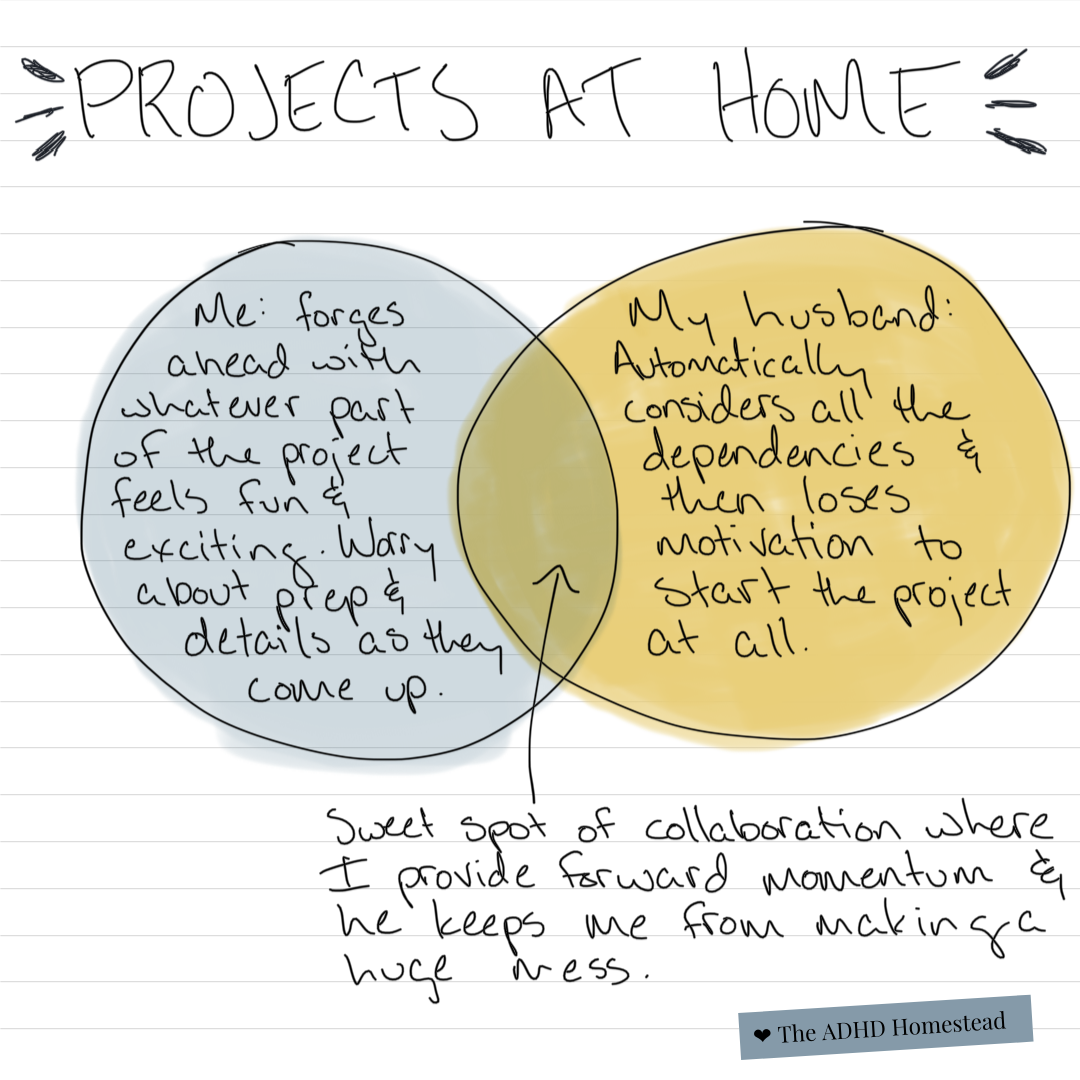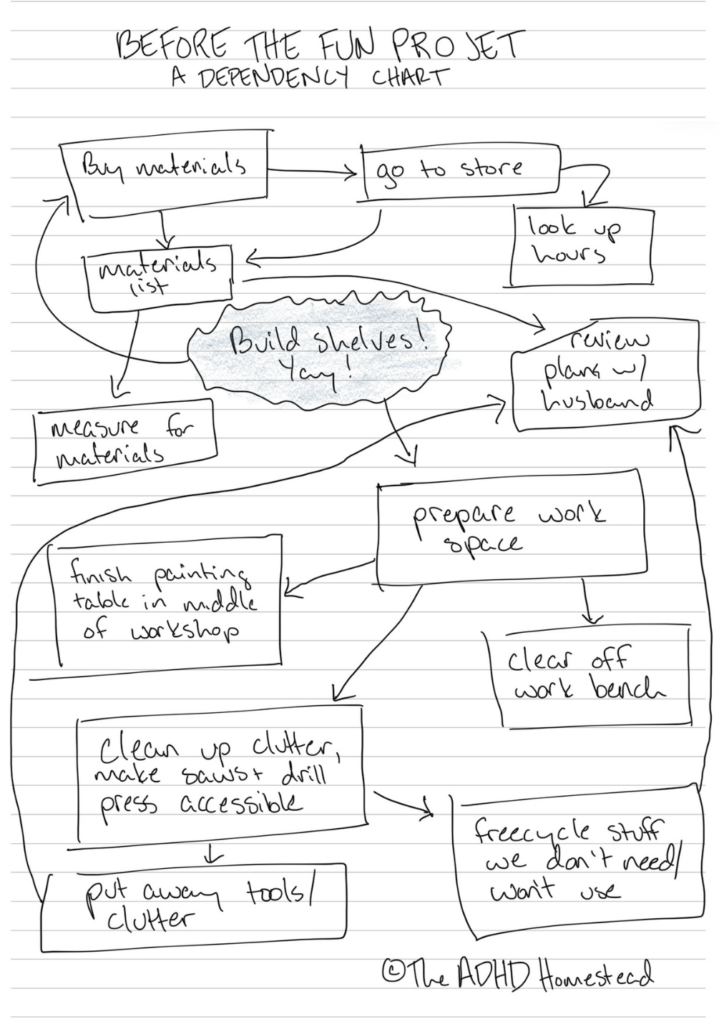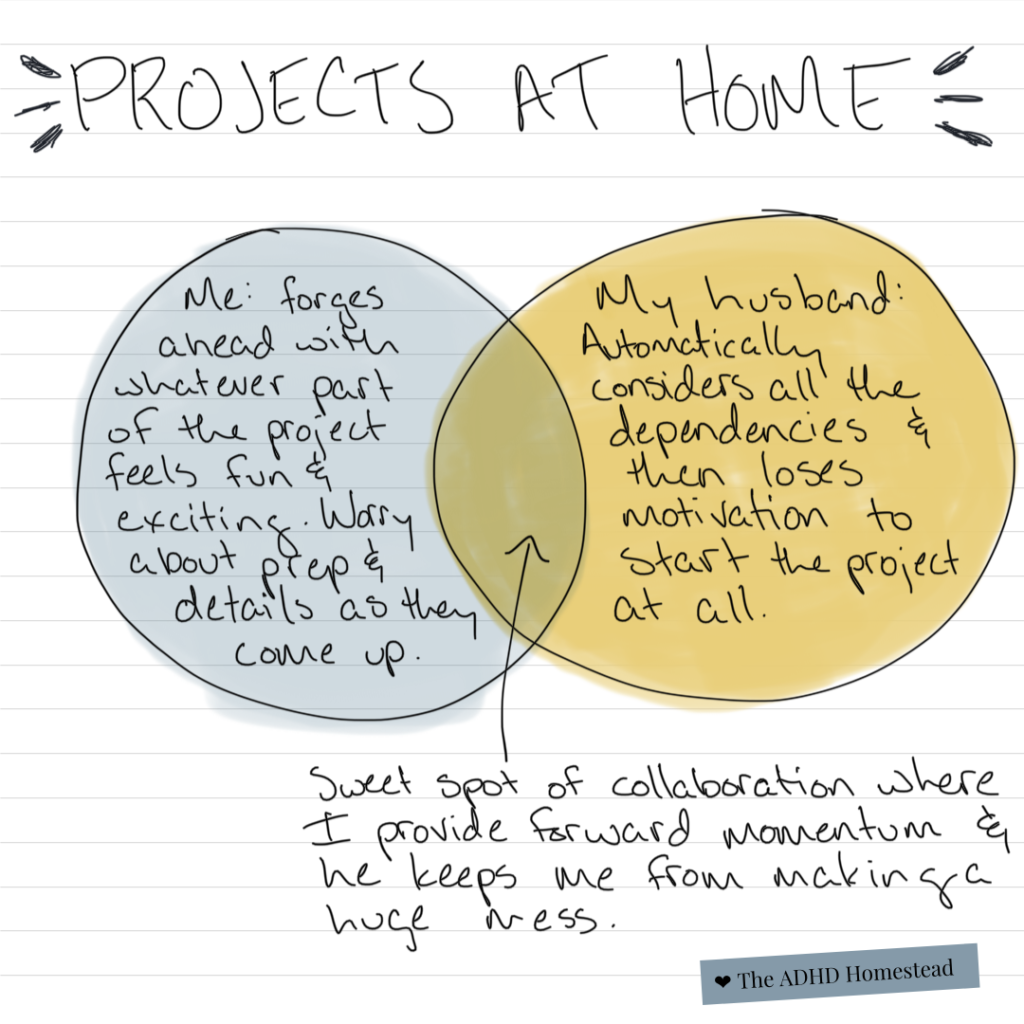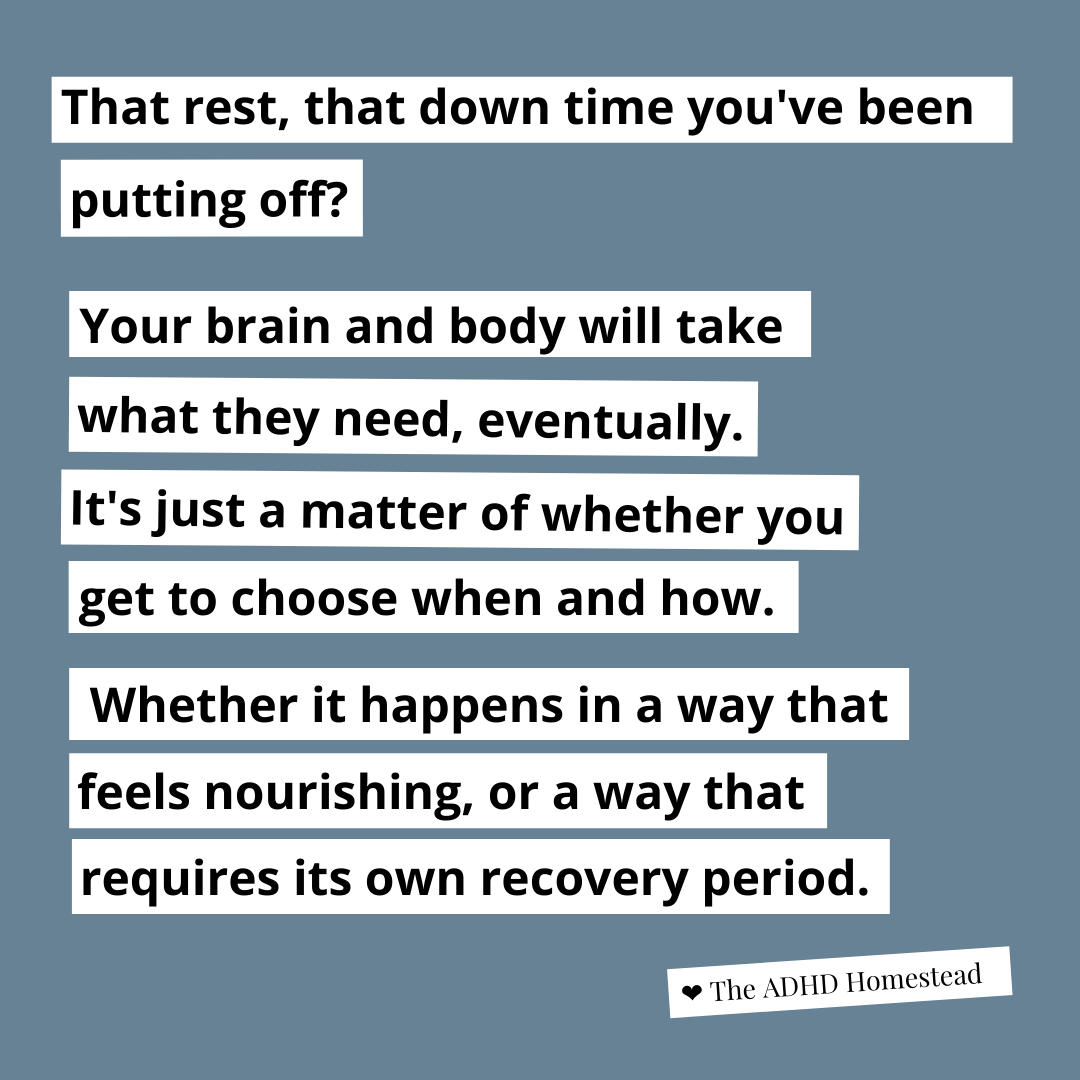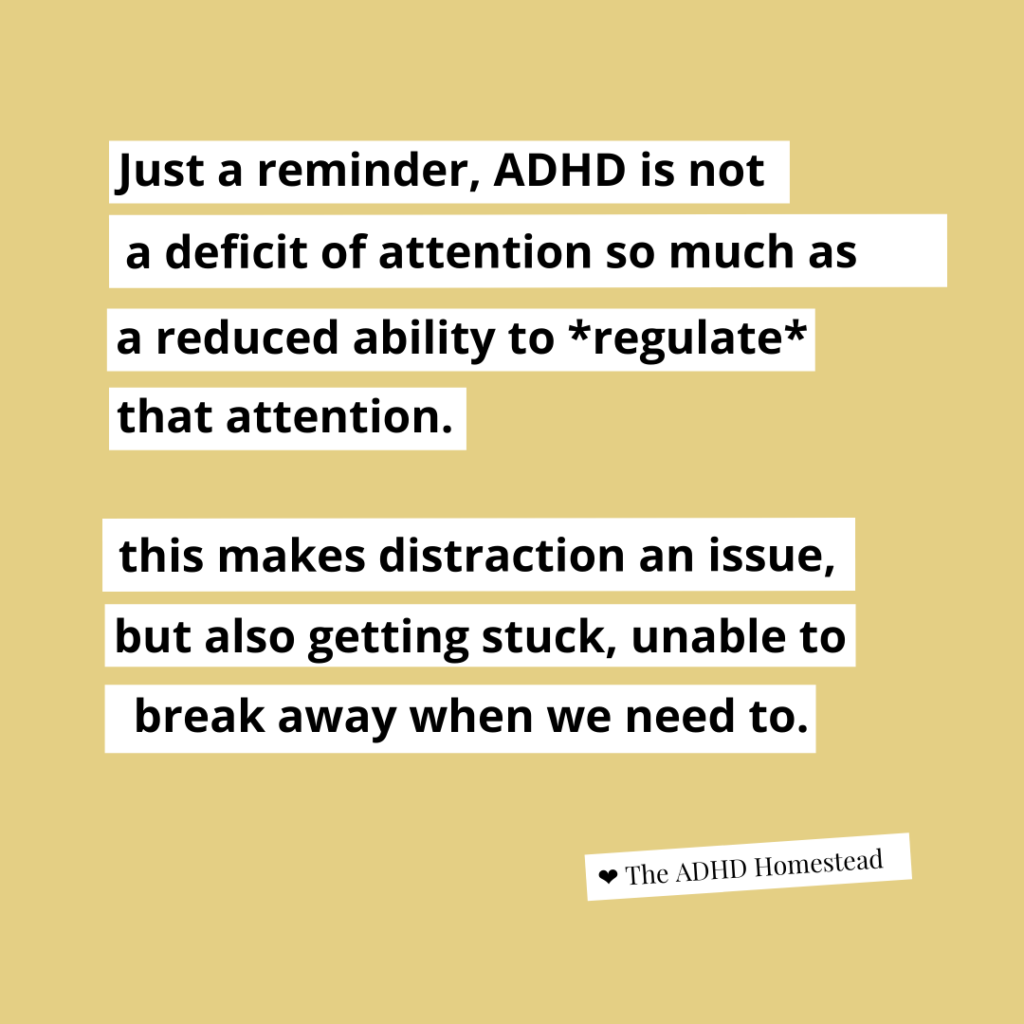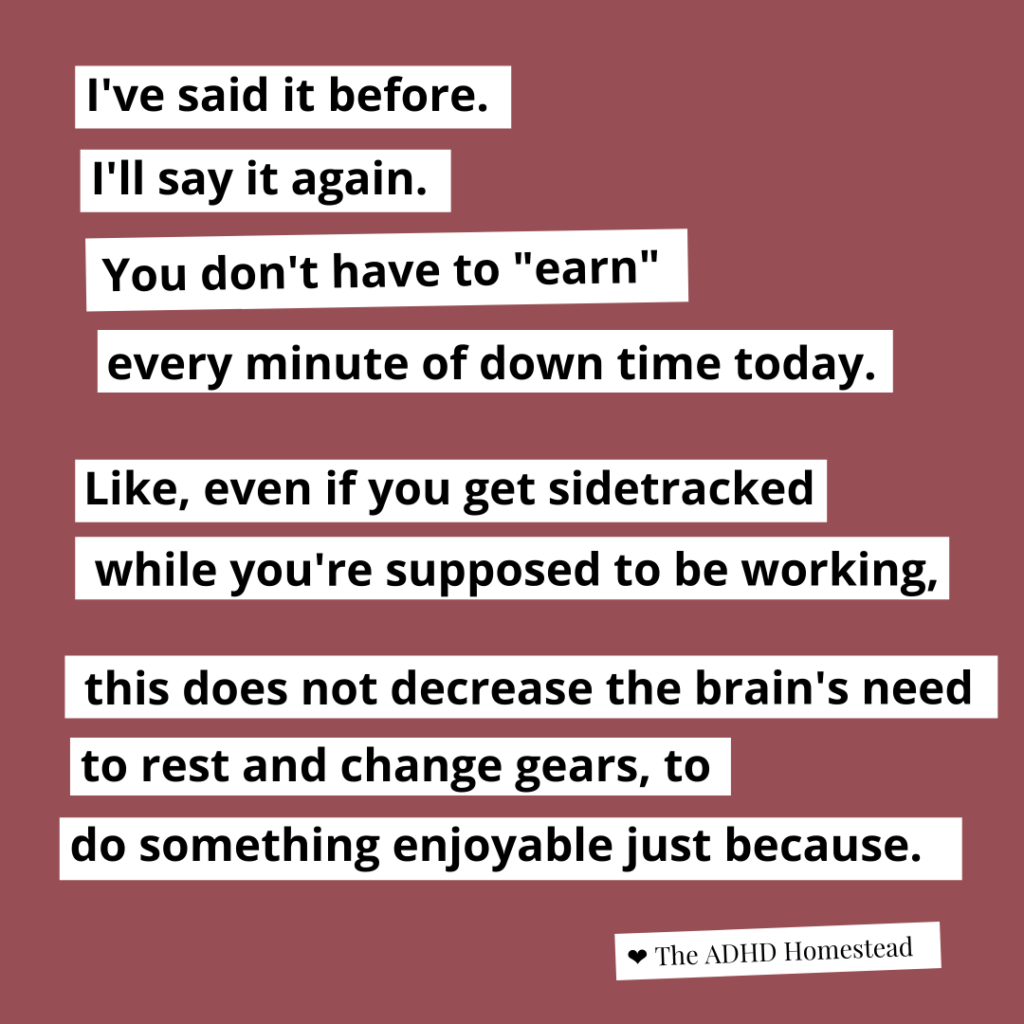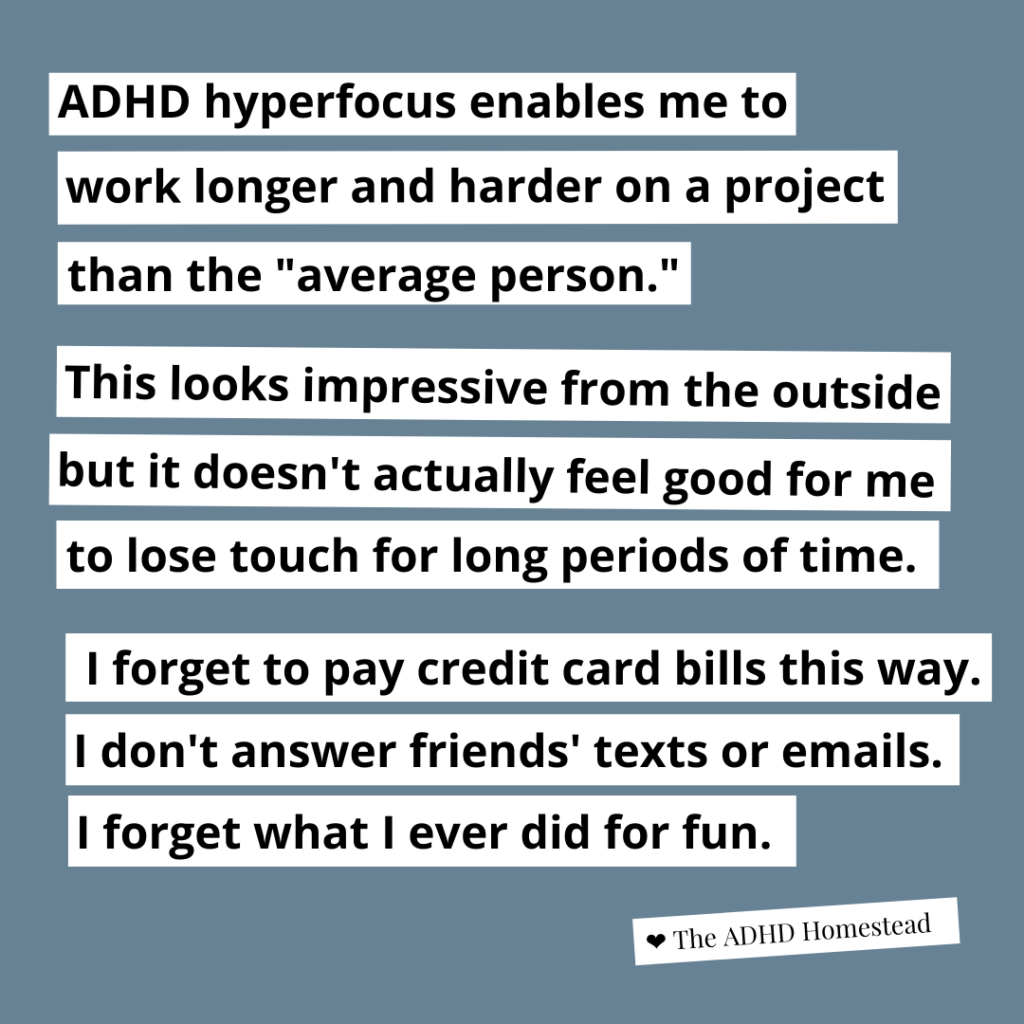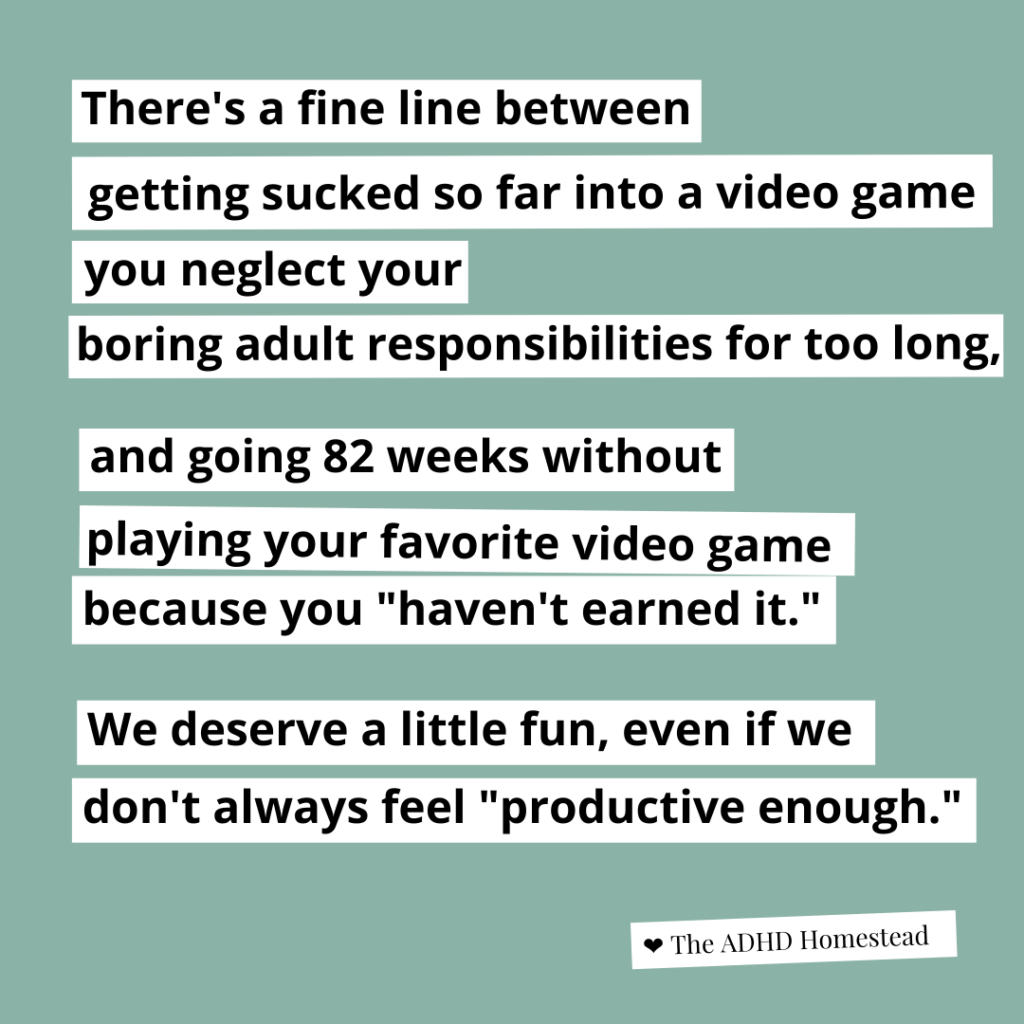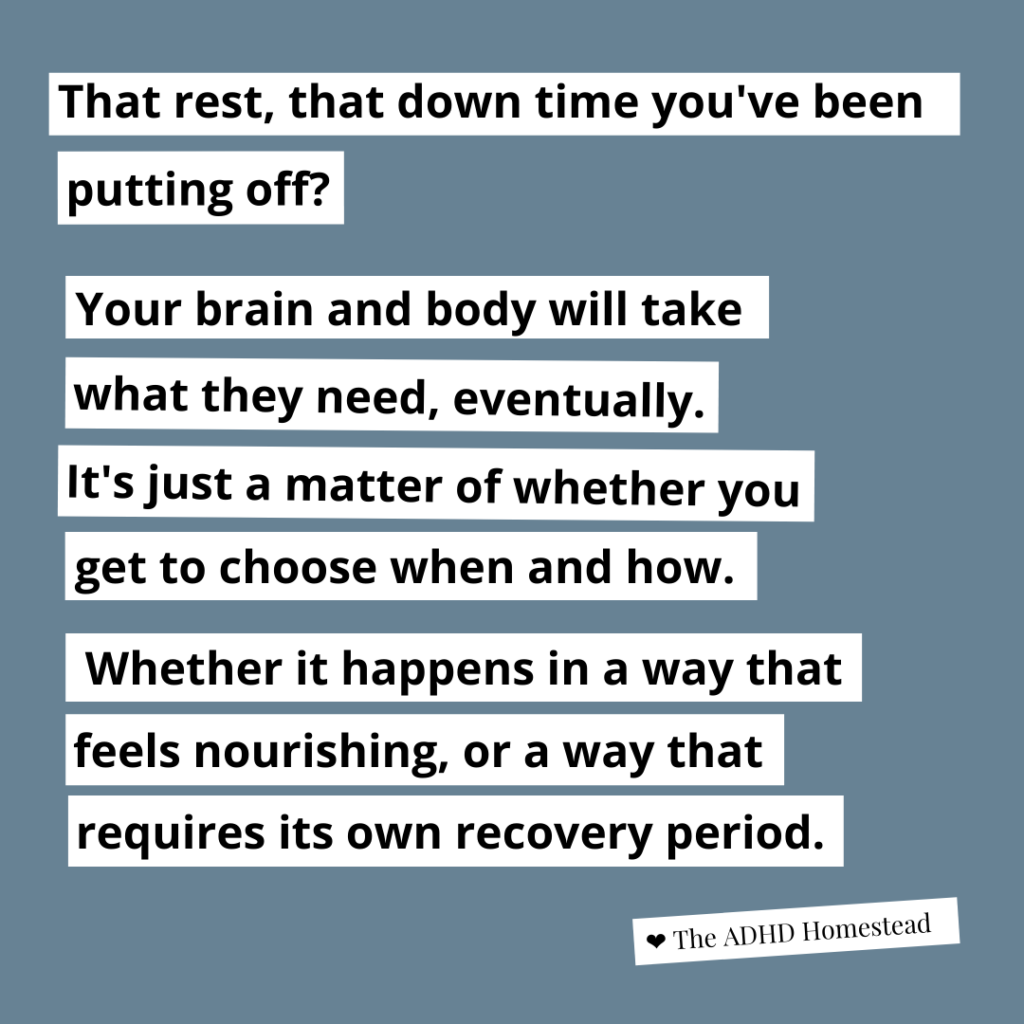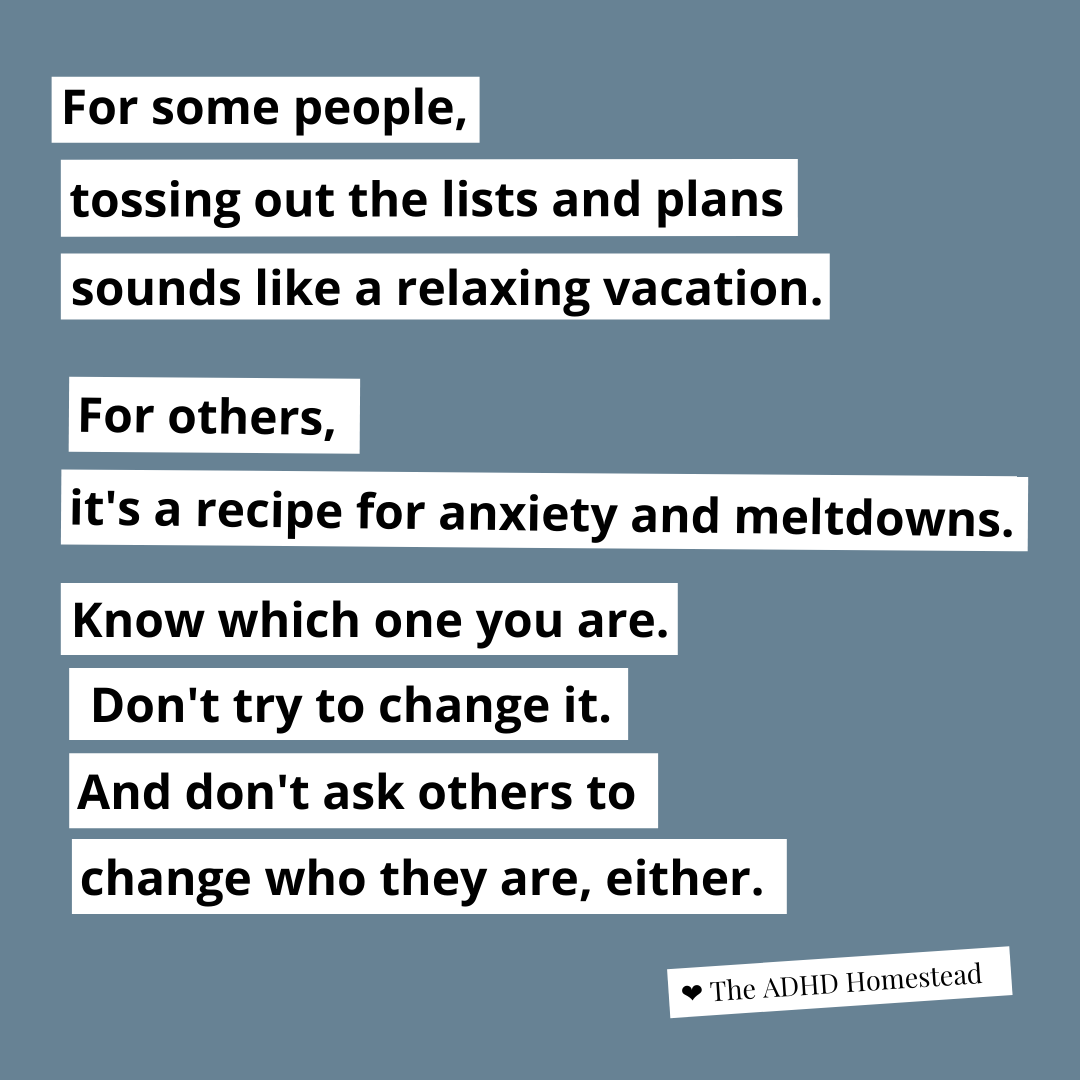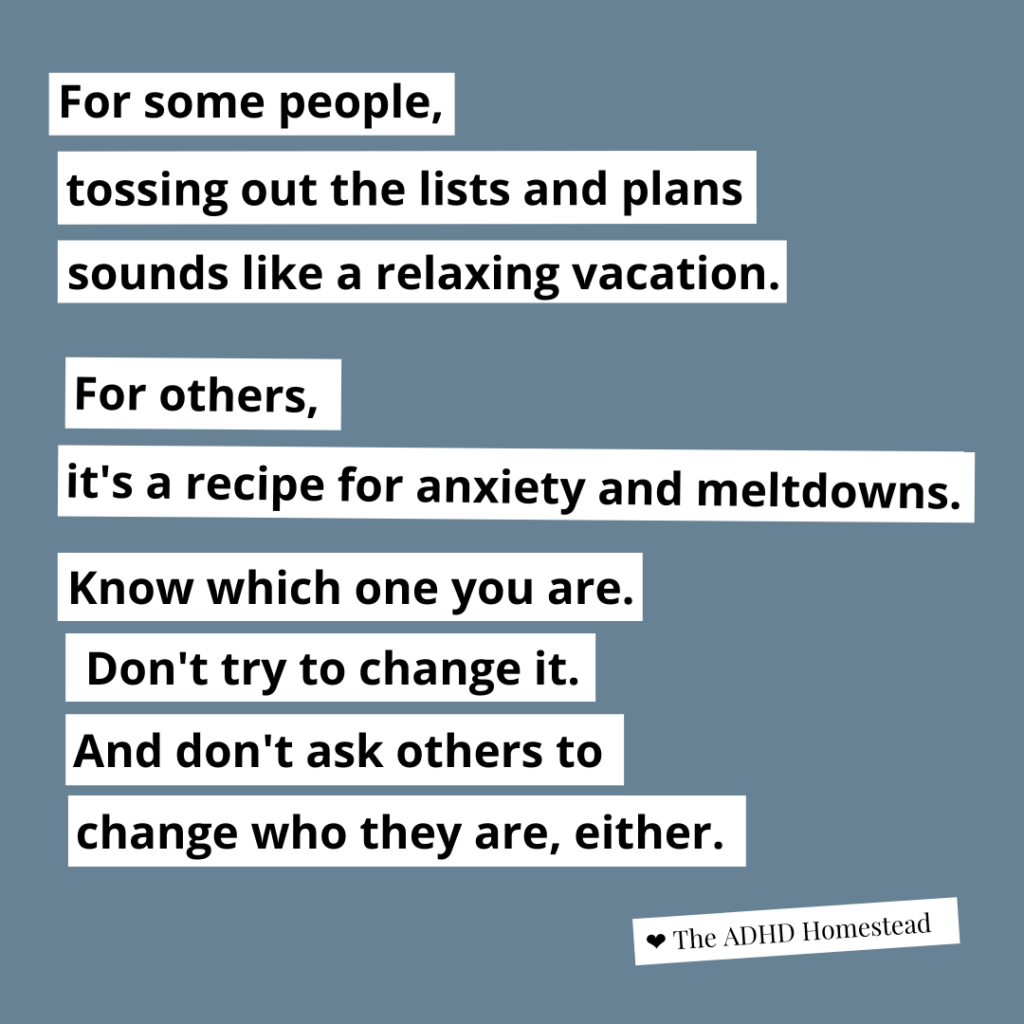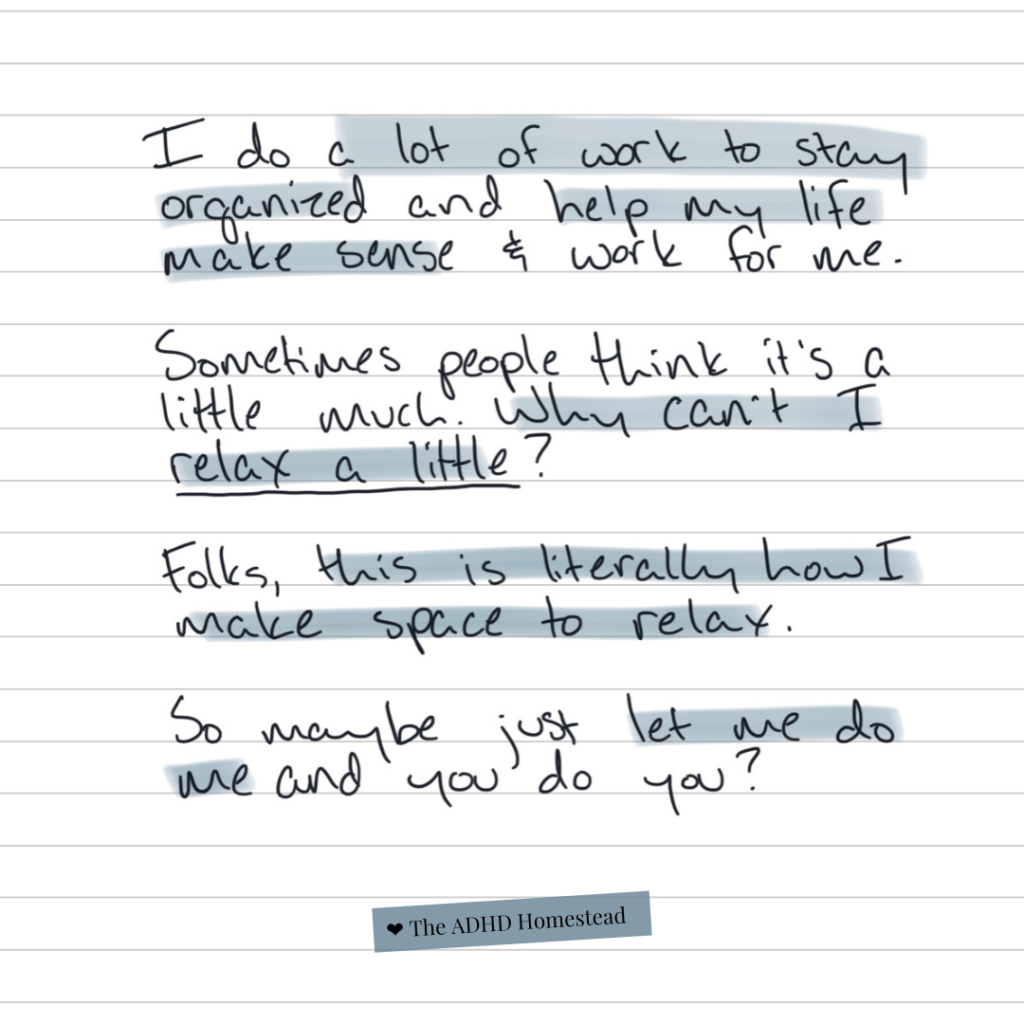I love projects. That said, not all ADHD people do. Maybe it depends where we exist on the hyperactive-inattentive continuum. I have a lot of restless energy, which I often channel into industriousness. This has its benefits and its drawbacks.
One benefit: I’m quite driven to do things. Tackling an ambitious project feels exciting (hello, dopamine rush). Under the right circumstances, I can get hooked on little bits of progress. This has pushed me through several ADHD feats of strength over the years.
An accompanying drawback: I struggle to direct this energy. I’ll skip to the exciting part of the project without considering prep, planning, or prerequisites. In the past, this has meant literally knocking down walls with no real plan for what happens afterward. I’ve spent hundreds of dollars on paint, then left it in the workshop unopened for years before giving it away on Freecycle. When I pulled down the crappy drop ceiling in our basement over a decade ago, I assumed I could slap drywall onto the existing furring strips and be done. (Spoiler alert: I could not. The ceiling sat naked until two months ago, when I finally just painted it as is.)
My industriousness can serve me well. It can also be expensive and messy and frustrating — for me and for others.
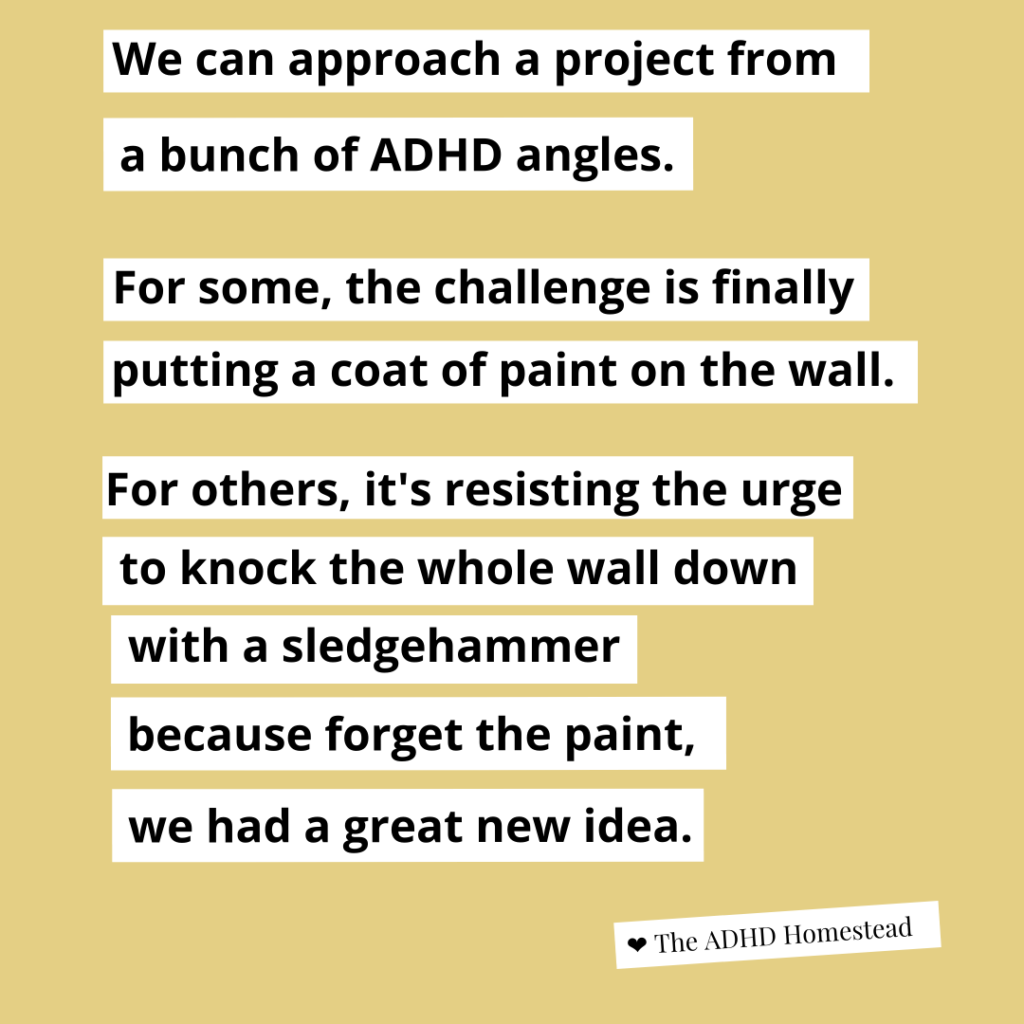
It’s all about the dependencies
I’ve found balance over the years, probably because I’ve had to learn to share a house with other people.
My husband, a software engineer, hates projects as much as I love them. I attribute this in part to his inability to see past the dependencies.
I once sat him down to discuss ideas for home improvement projects, only to have him throw up his hands and exclaim, “We need a dependency graph for all this!” As soon as he started thinking about any one project, his head filled with every other project it might depend on.
For someone who prefers to spend their free time playing video games or researching their newest hyperfocus fascination, this is a no go. There are too many dependencies. Too many projects.
Neither of our approaches is inherently better than the other. My husband’s instinct to consider dependent projects automatically makes him good at his job. My freeform, where-the-spirit-takes-me approach makes me good at mine. I can’t create a book worth publishing without first churning out a fearlessly messy first draft. A hulking mess of code is far less fun to untangle.
Likewise, a haphazardly-begun demolition and renovation project. My husband needs my energy to get home projects started and keep them moving, but I need him to pump the brakes and provide some attention to detail. Our differences can make it tough to work together, but when we do, we make a pretty well-rounded team.
Sequential or dependent projects can trigger ADHD overwhelm and impatience
From an ADHD perspective, it’s like I bring all the impulsivity and restlessness and impatience, and he brings all the overwhelm and inertia.
Recently, though, I had a huge win. I managed to apply the brakes all on my own. Maybe we’re learning from each other.
I’ve wanted to build a couple sets of shelving for quite some time now. We made a deal I would not do this (or any other decor upgrades) until I redid the basement. My brain found this arrangement so intolerable, I accomplished the entire basement project through a massive hyperfocus bender in December. By January I expected to hit the salvage lumber place and collect my sweet, sweet reward.
Except I had nowhere to work. During the renovation our workshop had reached peak clutter and messiness. I couldn’t get to the saws, the drill press, or the work bench. I had a table in the middle of the floor, piled high with junk, that needed new paint on the legs.
I could’ve built my shelves, but not easily. Perhaps not well, either. I’d encountered yet another preparatory project. After all my hard work, it stung.
I’m learning restraint can be rewarding
However, I chose to give myself a proper workspace before forging ahead. This was both painful and exhilarating. I’d done it!
Holding myself back from the fun and rewarding part of the project is such a struggle. Literally every time I find the self-control to do it, I crow to my whole family about what a tremendous victory I’ve had.
I don’t know if they understand how special it is for me to have not tried to fit a pile of lumber into a space already occupied by a metric crap ton of other stuff. (Or in another case, not knocked down a wall.) For them, actually doing a thing often presents a larger challenge.
I get that. I struggle to start tasks, too. But for a restless soul like me, the disasters averted — the moments I manage to slow down and exercise a little restraint — fill me with the most pride.
Which side of this ADHD coin are you? How do you find balance between starting too soon or in the wrong place and not starting at all?
Hey there! Are you enjoying The ADHD Homestead?
Here's the thing: I don't like ads. I don't want to sell your attention to an advertising service run by the world's biggest data mining company. I also value my integrity and my readers' trust above all, which means I accept very few sponsorships/partnerships.
So I'm asking for your support directly. For the cost of one cup of coffee, you can help keep this site unbiased and ad-free.
Below you will find two buttons. The first lets you join our crew of Patreon pals and pledge monthly support for my work. Patrons also have access to my Audioblogs podcast. The second takes you to a simple donation page to pledge one-time or recurring support for The ADHD Homestead, no frills, no strings. Do whichever feels best for you!

